Pickling salt is also called rock salt, NaCl, canning salt, preserving salt, and salt.
Pickling salt is pure salt, unlike other forms.
The pickling salt has been used for more than eight thousand years and has been used in food flavoring, religious rituals, canning, trade, and preservation.
Only from the past 100-years, people are the salt to preserve other foods, including meat products.
Pickling salt is sodium chloride obtained in a pure form; it doesn’t include anti-caking agents and any other kind of additives in the salt, which you find in other salts.
The anti-caking agents in the salt can make it not fit for pickling because it would not dissolve in liquids.
The additive might be harmful to your health when you consume them with foods.
What is Pickling Salt?

Pickling salt is also called preserving or canning salt, and it is pure granulated salt.
Pickling salt does not turn liquid cloudy like other salts; it doesn’t include any anti-caking ingredients or additives like iodine.
Also, the fine granules of pickling salt make it easy to melt in brine.
Ball and Morton are two standard brands obtainable at grocery stores.
Pickling salt is used for various purposes; around 6-percent of salt is used for eating/consumption, around 12-percent is used for water conditioning procedures, around 68-percent is used in manufacturing and other manufacturing processes.
However, if you run out of pickling salt, then you can look for substitutes that can help you replace pickling salt effortlessly.
5 Substitutes for Pickling Salt
1 – Kosher Salt
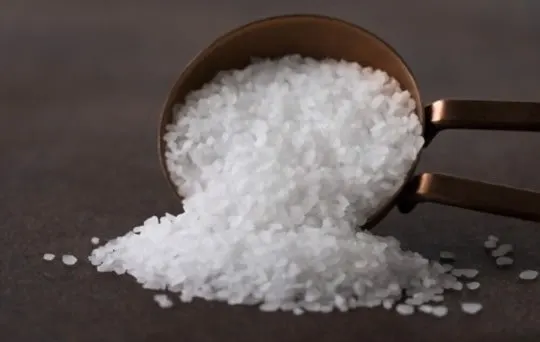
Kosher salt is one of the best substitutes for Pickling Salt as kosher salt is also pure salt and does not contain additives, anti-smoking agents, or iodine.
Kosher Salt offers a bright, mild taste, and it doesn’t discolor pickles as it is pure salt; the flavor of the pickle doesn’t change.
The main difference between pickling salt and kosher salt is the texture.
Kosher salt grains are larger; because of that, it may cause the measurement inaccurate.
That is why it is important to take the right measurement when substituting kosher salt for pickling salt.
The substitution measurement for one cup of pickling salt equals one and a half cups of kosher salt.
Also, unlike pickling salt, kosher salt takes a longer time to melt, and you might need to add more salt content in the recipe than the pickling salt.
2 – Sea Salt
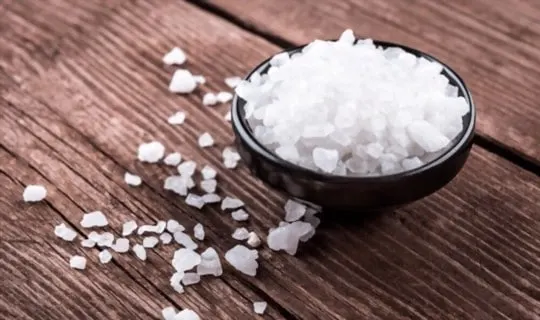
Sea salt is also a good substitute for pickling salt when you are in a pinch.
Sea salt contains natural minerals and is a healthier alternative to table salt.
However, sea salt’s particle size is bigger than kosher salt and pickling salt, so it can make your recipe less or more salty depending on what you are substituting.
You will find two types of sea salt that includes fine sea salt and coarse sea salt.
Adding coarse sea salt to pickles gives a nice flavor as it contains a higher moisture-absorbent factor.
Also, coarse sea slat takes a longer time to melt, and it also causes problems if it is not measured properly.
The substitution ratio for half a cup of pickling salt equals half a cup plus one teaspoon of fine sea salt and one cup and half a teaspoon of coarse salt.
If you follow the measurement properly, then you can replace pickling salt with sea salt accordingly.
3 – Non-iodized Table Salt
Non-iodized Table Salt is also one of the great substitutes for Pickling Salt.
Still, it is not preferable to use non-iodized table salt because iodine can discolor vegetables and make the pickle solution cloudy.
Also, when using iodized salt in your pickle recipe, there will be no taste difference between pickled foods and regular food.
Non-iodized salt doesn’t include iodine.
It is the best choice for pickles because they can retain a similar flavor and color as pickling salt.
However, non-iodized salt contains anti-caking materials that will make the brine cloudy, so you need to add a pinch.
Table salt is treated into smaller granules, which make the salt melt easily like pickling salt.
Also, non-iodized salt offers a stronger salty flavor.
The smaller salt granules are easy to measure.
The measurement ratio is 1:1, which means one cup of Pickling salt is equal to one cup of pickling salt.
4 – Iodized Table Salt
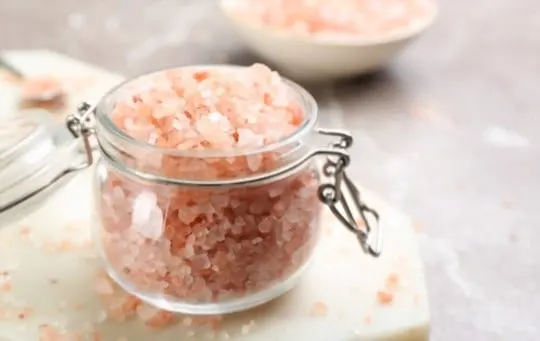
Iodized table salt is also an acceptable substitute for Pickling Salt; Iodized table salt is used in canned vegetables and fish.
Iodine helps to retain the deep green color of canned vegetables and prevents the darkening of fish.
Iodized table salt contains potassium iodide and dextrose as well as the anti-caking agent like non-iodized salt.
It also contains added iodine that can discolor foods, but you can avoid it if you use pickling salt instead of iodized table salt.
It is not the best substitute for pickling as it contains iodine that negatively affects the taste and flavor of the pickle.
Iodized table salt can darken the color of pickles, and the fine grain salt makes the brain hazy because it contains an anti-caking agent.
5 – Coarse Sea Salt
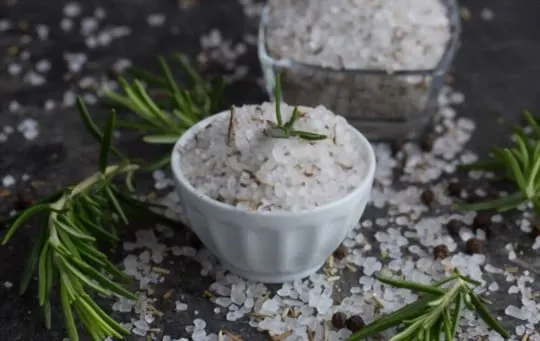
Coarse sea salt is a good substitute for Pickling Salt because it contains natural minerals and no artificial additives or chemicals that affect the color and flavor of the dish.
Coarse sea salt can be a better choice for pickling as it has a higher moisture-absorbent factor.
It is suitable for baking, cooking, or to use as a finishing salt on your dishes instead of table salt.
The substitution ratio is 1:2, which means one cup of Pickling salt equals half a cup of kosher salt and one and a half cup of coarse sea salt.
With the right measurements, you can replace pickling salt easily with coarse sea salt as it has no iodine content that can discolor pickles.
Conclusion
Choosing the right substitute for Pickling salt is not just enough when you use an alternative.
You should also consider other factors like textures, measurement, etc., for better results.
These substitutes are considered the best options when you need an urgent replacement for pickling salt.
Pickling salt has different purposes in every recipe, but always keep in mind that it includes water, vinegar, sugar, and the right ratio of salt when making a pickle recipe.
If you follow this formula when making your pickles, then these substitutes will work for you accurately.
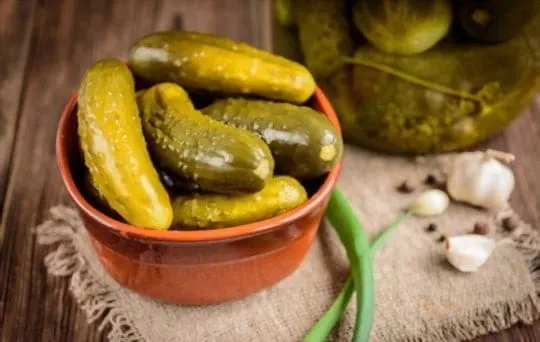
The 5 Best Substitutes for Pickling Salt
Ingredients
- Kosher Salt
- Sea Salt
- Non-iodized Table Salt
- Iodized Table Salt
- Coarse Sea Salt
Instructions
- Choose your preferred substitute from the list of options.
- Organize all of your ingredients.
- Follow the substitution ratio to determine how much is required in your recipe.
